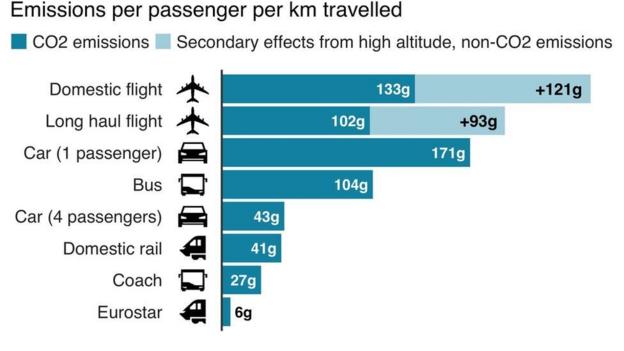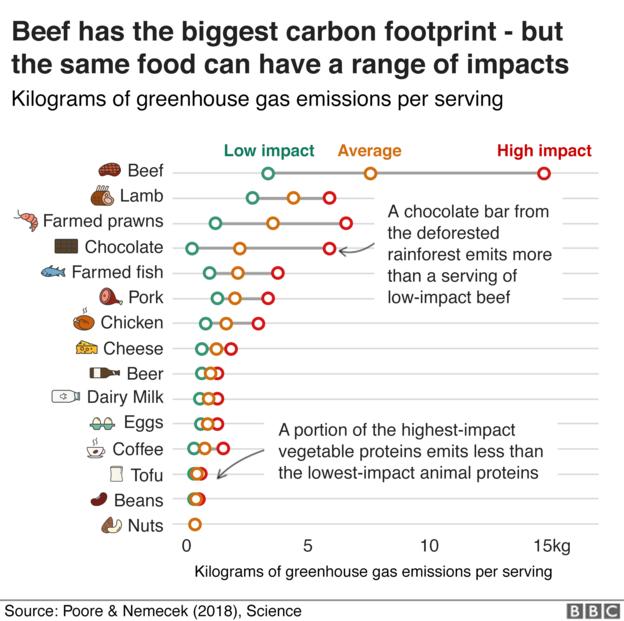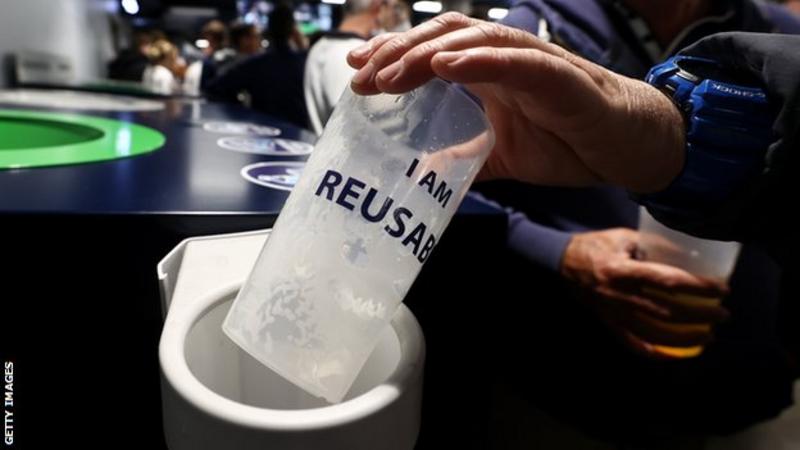You drive to the game, have a beef burger, hand over your ticket, watch the match and give the third kit you bought a rare outing.
But with the COP26 climate summit under way, sports fans are being urged to reconsider the way they support their teams.
Two hundred countries are being asked for their plans to cut emissions by 2030.
They all adopted the Paris Agreement in 2015 to make changes to keep global warming "well below" 2C above pre-industrial levels - and to aim for 1.5C - so we avoid a climate catastrophe.
The resolutions from the summit could affect all areas of life, including sport.
So how can sports fans help reduce their carbon footprint and play their part in saving the planet?
Walk, cycle or use public transport
How you get to a game has a huge impact on your carbon footprint for the day.
If you can walk or cycle, that is the best option by far - for your health as well as that of the planet.
If that is not possible, a coach put on by the club - if you are going to an away game - is likely to be the best option.
Otherwise, the best mainstream means of travel is the train.
If you are going to drive, then how about a car share with friends or fellow fans? Four people in a car is actually better than getting the bus in terms of CO2 emissions per person.
The worst way to travel for the planet is flying. Any land option is better than that, even if you are travelling hundreds of miles.

Think about what you eat
Another thing to think about when heading to a game is what you eat - and how you eat.
According to a EAT-Lancet Commission report on healthy, sustainable diets, global consumption of fruits, vegetables, nuts and legumes will have to double for "planetary health".
Simply cutting meat and dairy products from your diet can reduce an individual's carbon footprint by two-thirds.
Locally-sourced food is better too with a lower carbon footprint than transporting produce across the country or the world.
So a vegan/plant-based option is likely to be the best bet for the environment. But if you are going to eat meat, then fish, chicken or pork is better than beef or lamb - like going for a hot dog rather than a burger.

League Two side Forest Green Rovers serve only vegan food in their ground to players and fans.
If you are having a beer, a draught pint is responsible for fewer emissions than cans or bottles. Even better at clubs who offer reusable cups/glasses.
Make sure to put everything in the right recycling bin at the game too. Some clubs like Liverpool and Tottenham do not have single-use plastics, while Manchester City have trialled edible coffee cups.Even better is bringing your own food or drink to a game with reusable bottles or packaging, but some clubs or stadiums do not allow this - so check first.
Go paperless
If your club offer you the chance to have a digital ticket on your phone, rather than sending you one in the post, this is a good and easy option.
A printed ticket also involves a receipt and an envelope at least, as well as carbon emissions involved in transporting it to you.
The Premier League has encouraged clubs to operate a "digital-first policy" because of Covid-19 anyway.
If you go to a game, do you really need a physical programme? Many people buy them almost out of habit, give them a quick glance and put them in a drawer at home. Lots of clubs offer digital versions.
If you do want a physical ticket and a programme and will never look at them again, you could always consider offering them to a collector. Reduce, reuse, recycle is the best order. Don't just throw them away.
According to one estimate, for every ton (907kg) of paper that is recycled, 17 tree lives are spared - along with 380 gallons (1,727 litres) of oil, three cubic yards (2.29 cubic metres) of landfill space, 4,000 kilowatts of energy and 7,000 gallons (31,822 litres) of water.
Don't buy a new kit every year... or if you do, wear it
We know football fans often like to buy the club's new shirts - and for many teams that can be two or three every year.
Fashion accounts for around 10% of greenhouse gas emissions from human activity.
A shirt made from polyester - as most football shirts are - has more than double the carbon footprint of one made from cotton (5.5kg of carbon dioxide per shirt compared to 2.1kg).
Even recycled polyester takes hundreds of years to decompose and can lead to microfibres escaping into the environment.
Non-league Whitehawk have a kit made from recycled plastic bottles, while several rugby teams - including Harlequins, Leinster and Munster - have shirts made from recycled ocean plastic.
If you do buy, avoiding putting a name on the back of any shirt makes it easier to pass onto someone else.
So it might be time to reduce the amount of football shirts you buy - maybe keep wearing last season's or any retro ones you have.
But if you do buy them, it is best to wear them more often - and reduce the amount of T-shirts or gym kit you buy in exchange.
In the UK, continuing to actively wear a garment for just nine months longer could diminish its environmental impacts by 20-30%.
What are clubs and governing bodies doing to help?
Forest Green are the trailblazers in this area. Their ground in Gloucestershire uses only renewable energy, rainwater and cooking oil are among the things recycled at the stadium and there are charging points for electric cars and a park and ride scheme.
They were recognised by Fifa in 2017 as "the greenest football club in the world" and in 2018 became the first carbon-neutral football club, as certified by the United Nations.
A widescale report earlier this year showed Tottenham were the most sustainable Premier League club, scoring maximum points.
They had a zero carbon game with Chelsea in September where both sets of players arrived at the stadium on coaches powered by biofuel and drank water from sustainable cartons rather than plastic bottles.
Reusable cups were used and a large selection of vegan food was sold. The net zero fixture was supported by the UK government.
Southampton plan to plant 250 trees every time an academy player makes their first-team debut.
In August, rugby union side Worcester Warriors became Europe's first professional sports club to sign up to the United Nations Sports for Climate Action framework.
Among their steps were using returnable cups on matchdays, having recycled food trays and retail packaging, and using British suppliers. They estimated the club had saved 239kg of wood by moving to e-signatures instead of paperwork.
The EFL's new Green Clubs scheme plans to benchmark clubs' environmental rating and will provide advice and funding to let them access the scheme.
Elsewhere, 49 British football clubs - all from the English leagues bar Hibernian - recently signed up for the 'CUP26' scheme.
That saw fans score 'goals' for their clubs by doing 100 environmentally-friendly challenges like eating a meat-free meal, walking or cycling or having a screen-free evening.
The winner is due to be announced on the first Monday of COP26.

